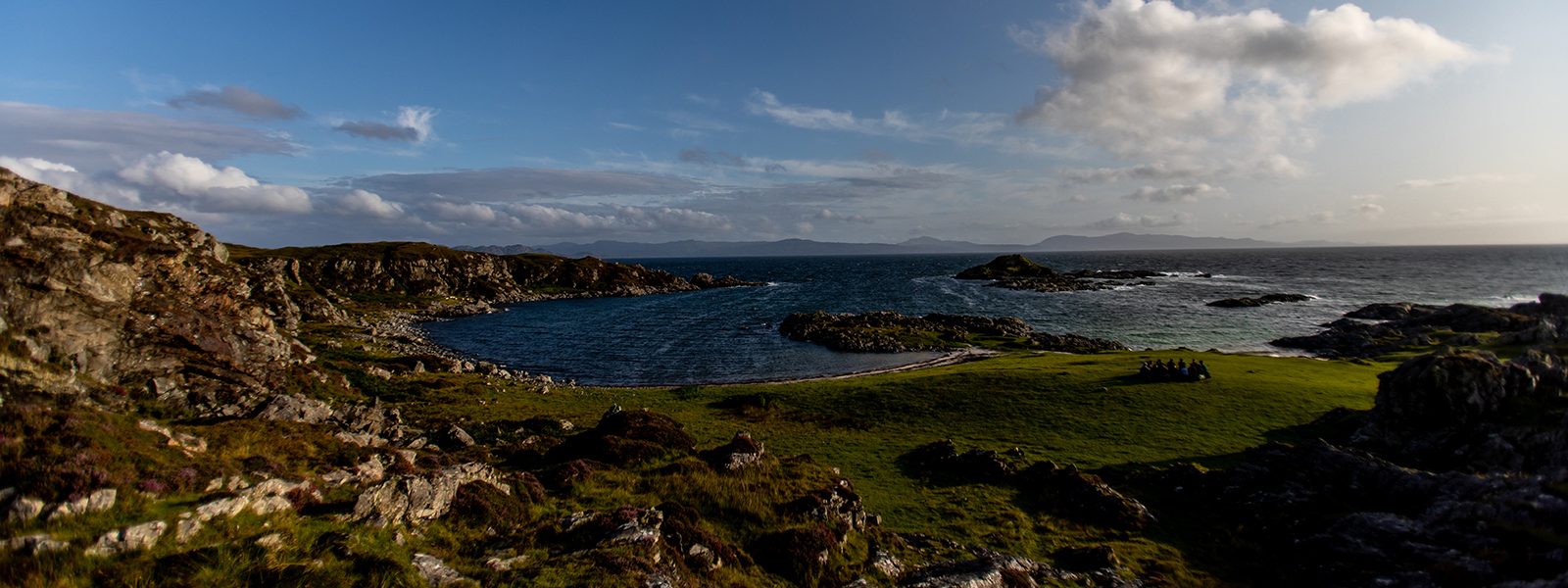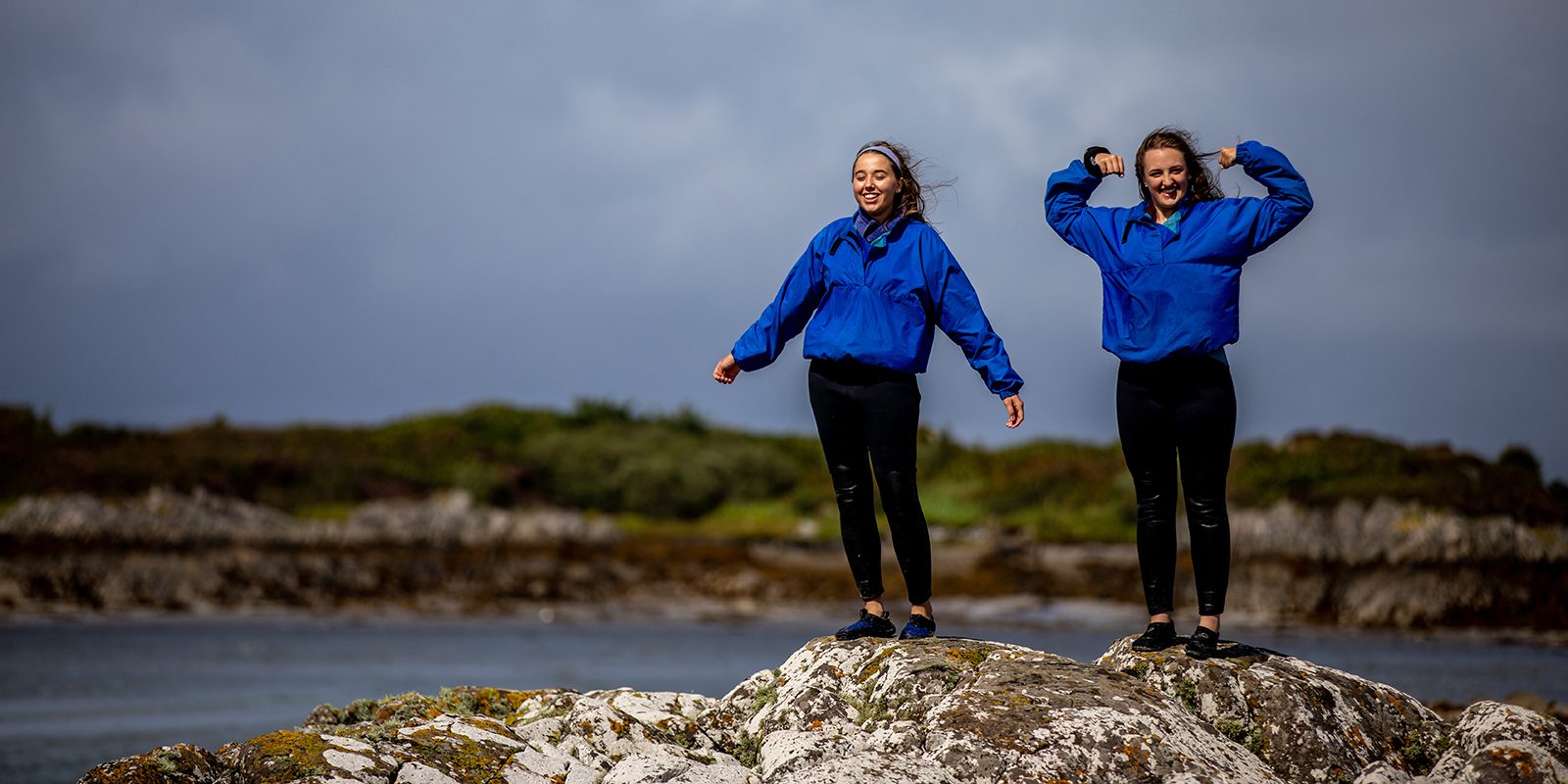The Mark Scott Leadership for Life Award
Partnered by The Outward Bound Trust

CONGRATULATIONS
Your young person is applying to take part in the Mark Scott Leadership for Life Award.
This page should answer your questions about what they are signing up for.
The Mark Scott Leadership for Life Award is a personal development award for young people across the Central Belt of Scotland. It was set up after the sectarian murder of teenager Mark Scott, and over 2300 young people have gained The Award since 1998.
The Award involves a 5-day residential training course at an Outward Bound Trust centre, and up to 4 months of working to set up and deliver a community project, fundraising if necessary.
Our research shows that The Award gives young people vital life skills which support them in moving into further education or work; participation in The Award increases young people’s feeling of responsibility towards their community and makes them more willing to volunteer their time to help others; and the experience of taking part in The Award continues to influence individuals for many years afterwards. They gain self-confidence, make lasting friendships and often surprise themselves with what they can achieve!
We are The Outward Bound Trust, the UK’s oldest provider of high-quality outdoor learning. We have run the Mark Scott Leadership for Life Award since its beginning, initially on behalf of The Mark Scott Foundation, who then in 2013 handed over the whole Award to us to run.
Young people at participating schools apply online. If accepted onto The Award, they will work in a group of up to 14 from nearby schools. Each group includes people from at least one Catholic school as well as non-denominational schools.
There are 216 places available annually for participants from 76 selected schools in 18 areas across the Central Belt.
The Award aims to increase community cohesion. The Award also aims for participants to:
- Become more confident individuals, and develop the skills for independent learning
- Develop teamwork and project management skills and an awareness of how to lead others
- Develop awareness of, and show greater respect for others from different backgrounds
- Develop a sense of social responsibility by delivering projects that benefit their local community and have a positive impact on their community.
Each participant is expected to fully participate in every aspect of The Award. This includes:
- a 5-day residential course in the late summer or autumn
- a project group meeting every week for the duration of the programme
- an evening Project Forum
- a Refresh Day, where the whole team gets together to revisit their residential experience and reflect on their learning
- any necessary fundraising events
- three project delivery days.
- a final review meeting with their Project Coordinator
- The Award Ceremony in the spring
This will almost certainly involve some time out of school, depending on what each team chooses to do. Participants are expected to manage this themselves. The Award will be finished by the end of March, and the Award ceremony takes place soon after Easter.
There are also a couple of online questionnaires which help us to evaluate the effectiveness of The Award. Parents will also be asked to complete one of these short surveys.
The Award costs nothing for participants apart from a £20 administration fee (and a £10 returnable deposit for the residential week). Our fundraising from sources including the Scottish Government meets the roughly £1400 cost of putting a young person through the Award.
Participants may need to organise fundraising events themselves to meet the specific costs of their community projects. This is part of the challenge that they choose to set themselves.
Young people arrive at the Outward Bound centre on the first day of the course, and meet for the first time the others from their area who will form their team of 12 to 14 people. Over five days, they will experience an intense personal development course using adventure in the outdoors as the learning environment. By undergoing challenges as individuals and as teams, including an overnight expedition, the participants find out more about their capabilities and grow in confidence and ability. Participants also learn some psychological models for understanding themselves and others, and business models for organising projects.
Each group has a “Project Coordinator” –an Outward Bound Trust instructor experienced in facilitating the personal development of young people. The Project Coordinator is with the group through the whole programme, leading the residential course and attending project group meetings to advise and to monitor progress. We recognise that making mistakes and learning from them is an important part of development, and so Project Coordinators will allow young people the freedom to get things wrong occasionally, and will be there to give support and to help participants learn from their experience.
Each school has a nominated member of staff – a “School Champion” – to act as a link between the young people, the school, and the Outward Bound Trust. School Champions are often members of senior management teams or are experienced guidance staff.
Some young people struggle with the pressures of fitting The Award into an already busy life. You can help by encouraging them to manage their time and by understanding that some time working out of school or in the evenings will be needed.
We understand that young people have many opportunities to get awards for their hard work. For instance, the residential element of the Mark Scott Leadership for Life Award can be counted towards the Gold DofE residential experience requirement. Participants also count for up to 70 hours towards a Saltire Award, and as the Award encourages volunteering, elements may fit requirements for other Awards such as the Caritas Award.
That is limited only by the imagination and resources of the team. Past projects have included: delivering basic life support (CPR) skills to every P6 child in their area; running a ‘pop-up’ soup kitchen for homeless people; renovating community centres; providing stimulating activities for elderly people; and creating gardens for residential care homes. All that matters is that the team do something either with or for their community, and that it lasts the equivalent of three days.
Just look at the rest of this website! If you would like to speak to one of our team, please use the details on the contact page to get in touch.

